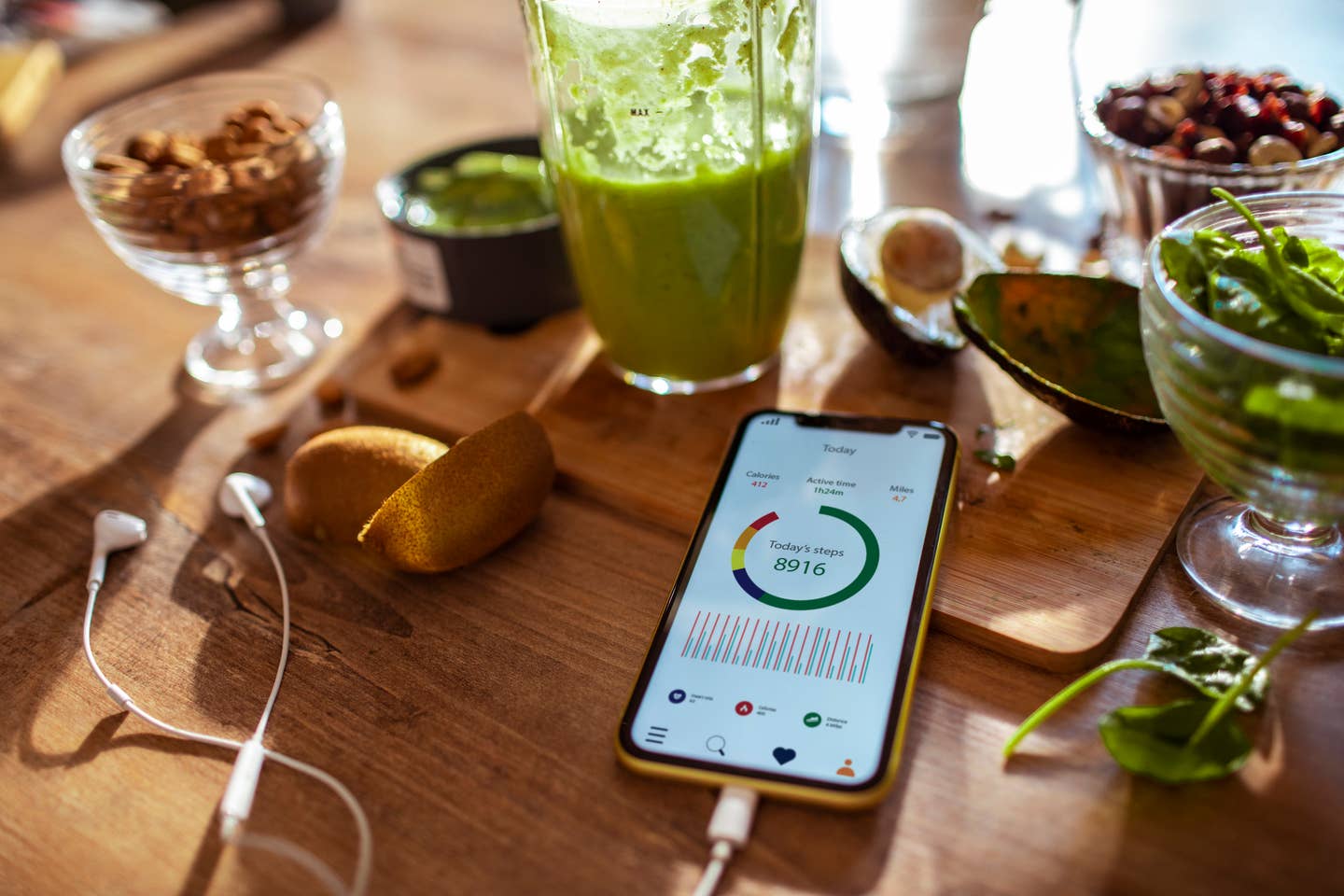
Why It’s Hard to Lose Weight and 2 Strategies That Work From a Doctor
If you are trying to lose weight and finding it difficult, you're not alone, and one diet and obesity doctor would add, it's not your fault. Weight loss and maintaining healthy body weight is not a product of a lack of willpower or your individual genetics. It's also not for lack of trying. It's about the information you are given, and the way we have been taught to eat.
The truth about weight loss is that your body emits hormonal responses to the food you eat. Processed and refined carbs, such as white flour or packaged foods, now make up 67 percent of the average American consumer's daily caloric intake, leading to weight gain. Once you start eating these foods – such as boxed breakfast cereal or a bagel or muffin in the morning – it is nearly impossible to stop the cycle of hunger, eating, and fat gain all day long.
Why is it so hard to lose weight?
When you eat a diet high in refined carbs, your body responds by storing them as fat, so you feel hungry most of the time, explains Dr. Jason Fung, a kidney specialist, diet doctor, and author of The Obesity Code: Unlocking the Secrets of Weight Loss among other bestsellers. If you are storing most of your calories as fat, you feel hungry shortly after eating, and then you eat again, which makes it harder to burn fat and achieve weight loss.
"It's not a failure of willpower when someone can't lose weight," says Dr. Fung. "Consider this: If one student fails, you might logically conclude that he wasn't trying or doing the homework. When more than 70 percent of the students fail, you blame the teacher."
That's the apt analogy from Dr. Fung, a nephrologist who treats kidney disease often caused by conditions linked to being overweight or obese, including metabolic syndrome, pre-diabetes, and type 2 diabetes, all so-called lifestyle diseases associated with diet and weight issues. He is an expert in intermittent fasting, which he says can help anyone who needs to break the cycle and lose weight effectively and without dieting. But first, he wants you to know that gaining weight or feeling constantly hungry all day long is not your fault.
What causes weight gain?
The type of food we routinely eat is the main culprit – since we unwittingly choose refined carbs and processed foods thinking that what we are eating is healthy. We consider our morning raisin bran as a healthy, choice, though it is full of added sugar, or the "whole wheat" bread for toast that is actually full of refined flour. When these highly processed foods that make up most of our purchased food get into our bodies, our blood sugar spikes and the hormone insulin takes over and shunts all the unused calories off to storage as body fat.
Unless you choose a mostly whole food diet high in plant-based high-fiber foods such as vegetables, fruits, legumes, minimally processed whole grains (full of fiber such as quinoa or oats), and nuts and seeds, your body doesn't know how to respond to the highly processed foods that we routinely eat.
When we eat refined carbs and sugar, it causes the hormone insulin to tell the body to just store the incoming calories that it can't use as fat. Once these are "locked up" he says, we have no fuel at the ready, and we feel hungry again, almost instantly after eating. It's like coming from the store, putting all the food in the fridge, locking it, and wondering what there is to eat. Your body can't get at the energy, so you feel hungry and simply eat again.
Weight gain is not genetic
Gaining weight or living with extra body weight is not caused by a lack of willpower or genetics, Dr. Fung points out. It is created by the broad, pervasive systematic problem of our processed food system that fails to nutritiously fuel our population. Consider that the obesity trend only really started one generation ago.
Dr. Fung argues that weight gain is not genetically linked, since you can look back to as recent a time as the 1970s when fewer than 13.4 percent of the population was overweight, versus in the 1990s when that number grew to 34 percent. The number of overweight and obese adults in the US nearly doubled in 20 years!
Today the number of Americans who are overweight or obese (defined as having a BMI of over 30) has nearly doubled again, to higher than 73 percent. It's just not that long ago that we were a healthier size and weight, Dr. Fung argues, and certainly, the past 50 years is not enough time for our genetics to have significantly evolved or changed. So what did? Our food systems.
3 Reasons it's Hard to Lose Weight
1. Processed food in our diet
Dr. Fung asserts that the number one driver of the current obesity epidemic in America is the way we process foods, and how refined flour and sugar in the Standard American Diet causes us to be constantly hungry and driven to constantly eat. That means that instead of ever giving our bodies the opportunity to burn fat, we are instead adding to our fat cells all the time, by eating foods that cause blood sugar to spike, insulin to surge, fat storage to happen, and our perception that, since our calories went straight into cold storage, we are hungry soon after we've eaten.
"It's like you bring home food from the store, put it straight into the fridge, and then look around and think: Where is all the food? You can't access it so you go get more food," he explains. That is what we are doing to ourselves when we eat refined carbs in the form of white bread, white pasta, white rice, chips, cookies and crackers, and almost everything else that is packaged food bought at the store. Because it goes into storage, we think we are hungry, and instead of using our fat stores as fuel, we eat again.
It's the processing of our foods and how packaged food is made that has changed since the '70s and even the '90s. When the government stepped in and advised people to avoid fat and to eat carbs, our population began to gain weight at a rapid clip. Now, we eat too much of everything and too often, but instead of thinking about calories in, calories out, Dr. Fund wants us to think about eating whole foods, preferably more plant-based foods full of fiber.
2. "Calories in vs. calories out" doesn't work
Dr. Fung says that weight gain is not a product of the "calories in vs calories out" approach, since it's the type of calories that matter. "Weight gain is really caused by the hormones in our body. Everyone thinks excess calories cause weight gain, so if you eat excess calories they get just get dumped into fat, like a sack," he says. "But the body is very smart. The amount of body fat we carry is linked to survival.
"The body controls the amount of fat you carry very tightly. Think about wild animals: They don't get fat. We were meant to carry a little fat, but not too much. You don't want too much body fat in the wild, because you are going to get eaten or not be able to get food. But too little fat and you die.
"One of the key hormones that regulate fat storage is insulin. Insulin tells the body to store fat. It's not bad. It's a natural hormone. It tells the body to store fat.
"But if you look at certain foods, some stimulate insulin more than other foods. So if you didn't know that eating cookies is more fattening than eating broccoli you are not paying attention.
"Even if you eat the same number of calories, if you eat cookies, you get fat. So it's not about calories, but about how your body responds to the type of foods you eat. When we eat refined carbs our body doesn't know how to use them so we store them as fat," Dr. Fung explains.
On the other hand, Dr. Fung says, when you eat a diet full of whole foods that are high in fiber, like vegetables, or that is full of lean protein or healthy fat, as well as fiber-filled plant foods, this helps to slow down the absorption of nutrients and calories by the body so you can burn it off at a healthy rate. Salad greens have been shown to keep blood sugar in check, which means your insulin never has to surge and you don't store those calories as fat.
3. Weight gain is hormonal
Weight gain is hormonal, Dr. Fung explains since insulin is a hormone. If we can break the cycle of allowing our insulin levels to surge by eating foods that spike our blood sugar but are low in nutritional value and devoid of fiber, such as white flour, white pasta, white bread, and processed snacks, we can start losing weight. This is not as difficult as you might think.
Dr. Fung has strategies to share that make sparking weight loss easier and more intuitive than taking dangerous diet pills or following a fad diet that's hard to stick with. There are methods that have worked for generations but that now feel alien – since we are used to eating up to eight times a day, and snacking on processed, refined carbs. If we can change what we consider a go-to snack, and cut back on how often we eat, we can turn back the clock on the obesity epidemic, he writes in The Obesity Code.
If the current obesity epidemic is not about willpower or lack of trying, and it's not about our genetics, then why is it that over 73 percent of the population is overweight or obese, and so many people continue to struggle to maintain a healthy body weight? It's the type of food that we are eating and especially the fact that most Americans eat more refined carbs than any other type of food.
2 Simple Ways to Lose Weight Without Dieting
"If you are gaining weight, the possibility is that your body is receiving the wrong information," says Dr. Fung. Think about it this way: If over 70 percent of the population is obese or overweight it may be that we are being given the wrong information. If we are told to eat ten times a day and we are eating chips or cookies or white bread, then it may not be the right information. If we are eating broccoli ten times a day, that is different information.
So, how can you lose weight?
Break the cycle by choosing whole foods, stopping snacking, and doing a modified version of intermittent fasting, which allows the body to burn fat, as it is designed to, Dr. Fung advises.
#1 Strategy to lose weight: Avoid refined carbs
The foods that we are eating. And how often we are eating. Of course in the 70s, we told people to eat low-fat foods and that became "eat carbs," or specifically highly refined carbs.
From the 70s we ate breakfast lunch and dinner and now we eat seven or eight times a day. And that is giving your body the instruction to store fat.
Think about it this way, if you have a high insulin level, and you take in 500 calories at breakfast, a bagel and jam, insulin spikes and you store all that as fat. So you are storing it all. So you have no energy left because all of it has gone into storage.
If you go to the store and immediately put that breakfast into the fridge, you have nothing to eat and now you are hungry. So you put all those calories into storage and now by 10:30 you are hungry again. So all those calories are in storage and you eat a muffin, and now all those calories go into storage and you have no energy left and you eat again. And that's the cycle.
#2 Strategy to lose weight: Eat less often
If you want to lose weight, the timing of when you eat and when you don't eat can help, explains Dr. Fung. "When you eat, your body wants to store calories, and it stores them as body fat. If you don't eat, your body has to go into its stores and pull those calories back out.
"That is the only reason you don't die in your sleep every single night," he adds. "Your body knows how to go into the stores and get calories to burn as fuel. So your body is either in the 'fed' state or the 'fasting' state. To get your body to burn fat, eat an early dinner and a late breakfast, and stop snacking."
Stop snacking or eating all day long
Dr. Fung points out that another major difference in our current culture is that we are never more than a few minutes from food. We encourage snacking all day long from a young age.
"We teach our kids that you go to school and have a midmorning snack and an after-school snack and to eat lunch and dinner. Even at games, they get a mid-soccer game snack. It's like we chase them down with juice and cookies all day long." That is how we are training all of our bodies to store fat. "We are telling insulin to store fat, all day long."
The data is clear, says Dr. Fung. "It can't be every person's fault that they are fat. It's unlikely that every person is suffering from a lack of willpower, developing individually separate from everybody else." Instead, we give people the wrong information. It's natural to not eat until you are hungry, and even not eat the minute the first hunger cue hits your consciousness. That is how humans and animals evolved. We didn't eat every waking minute.
Space out your meals
Simply put, to burn calories and lose weight, try to space out your eating, Dr. Fung says. "To lose weight you just have to give your body more time between meals. It's normal to not be eating all day long. There is nothing wrong with that since your body needs to burn fat. That is why it's there: To burn extra fuel." You are supposed to fast every single day, he adds. "That's why we have the word, Breakfast.
"Eating at your desk and in the car, or in front of the TV – none of this was normalized before now," says Dr. Fung. "Attitudes have changed. The availability of food and snacks is much, much higher. You are always tempting yourself. The opportunity is just always in front of you," he adds.
"Now it's acceptable to eat in a meeting: Cookies or bagels at every small gathering. In the '70s, if you ate in a meeting with your boss, people would think you were strange. You ate in the cafeteria, or you skipped lunch. Maybe you had an apple in the middle of the day. So it's a whole sea change. Everyone blames willpower, but the environment and readily available snacks of ultra-processed food are leading you to snack and eat all day long."
How do you fast?
You don't have to fast for long to burn fat. "When you're sleeping, your body is burning calories. It's why you have breakfast as the name of the first meal of the day."
How to get started? Don't eat between dinner and breakfast. If you have dinner at 7 p.m. and don't eat b breakfast until 9 am or 10 am, then that is about 14 to 15 hours of not eating, and that is a great place to start. We don't need to eat after supper!
If you try to space out your meals, that is putting your body into fasting mode. "You probably will get hungry at some point, which is fine. "But then you will get past feeling hungry. Essentially your body learns to feed itself, by going into your fat stores. Guess what? It's not unhealthy. If you are hungry, people think: I am going to get hungrier and hungrier. But that doesn't happen. It's usually around the time you are used to eating. And then it subsides.
"When you look at hunger, If you don't eat, say because you are busy at work and you work through lunch, you will notice that hunger does drop. So if you are hungry at 12 o'clock and you don't have time to eat, by 4 o'clock you feel the same way as if you ate. The huger is going to fall after a while. So if you fast for more than a day, your hunger actually goes down."
Feeling hunger is not unhealthy
If you get hungry, drink some tea, go for a walk, or try to relax, Dr. Fung tells his patients who are needing to lose weight for their health. "Our sympathetic nervous system kicks in. That is why people have more energy and focus than after they eat.
"Think about the lion who just ate. He just lies there. But the hungry wolf is focused, and that increased energy can be beneficial. You can focus. You can have more energy. Don't get 'hangry' about it. It's not unhealthy. You can channel that energy in a different way. I often just get outside and go for walk. You're not actually out of energy."
When you do eat, make sure to choose healthy whole foods with fiber which slows down absorption so you don't go back to getting this big insulin spike, he says.
What to eat for weight loss
You break this cycle by choosing foods that are low in refined carbs and sugar. And also try intermittent fasting. But first, let's talk about the foods you are eating.
The best thing is to think about the types of foods you are eating. Some foods are more fattening than others. So generally it's less refined foods. Anything that is highly refined is not that good for you. Anything that is natural or grown from the earth is better for you.
"Carbohydrates from whole foods such as legumes are better for you than refined carbs and don't affect insulin the same way since they are full of fiber, protein, and healthy nutrients," Dr. Fung explains.
The type of carbs to eat: Beans, legumes, vegetables, fruit, and anything that is natural, or not refined. Your body knows how to eat them, and when to stop eating them! Your body can handle fruit, vegetables, or beans. The fiber sends a signal that you are full, and it lets your body know that fuel is coming, and your body knows how to burn them and not just store them as fat.
Bottom Line: To lose weight, focus on eating high fiber foods and eat less often
If you can eat more whole plant-based foods and cut out refined carbs, your body will be able to burn calories instead of storing them as fat. Use these doctor-approved strategies to start to lose weight naturally and never have to diet again.
More From The Beet






